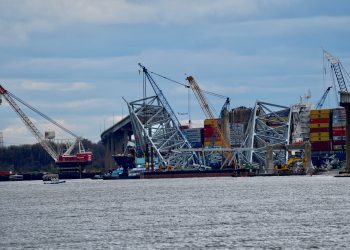RMI issued its Annual Report on marine safety investigations for 2020, recording a total of 726 very serious marine casualties, marine casualties, marine incidents, and occurrences, 80 less than reported during 2019.
The report notes a steady decline in total reports of marine casualties over the past five years. Marine incidents have fluctuated over the same period but there was a reduction during 2020. The number of occurrences has also fluctuated over the period, with a slight increase during 2020.
This downward trend in marine casualties is largely attributed to the reduction in severity of incidents occurring across the fleet. This is a direct reflection of improved training and safety awareness of vessels’ crewmembers, as well as the dedication to safety and environmental protection by the owners and managers of vessels in the RMI fleet,
…the report reads.
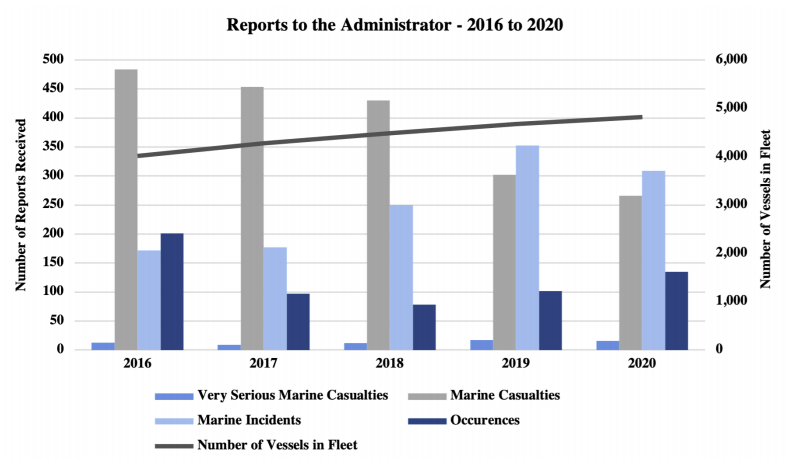
Key findings
-Very Serious Marine Casualties (involving loss of life, total loss of the vessel, or significant environmental damage)
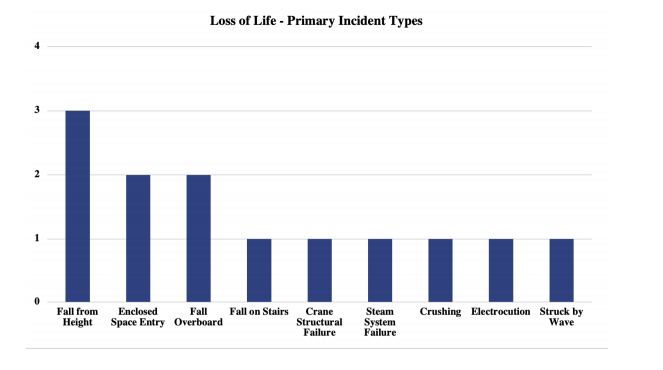
- During 2020, 16 very serious marine casualties were reported to the Administrator.
- They involved 14 merchant vessels and two yachts, with 13 of the very serious marine casualties resulting in loss of life.
- Falls (including from height, on stairs, and overboard) continue to be the leading causes of occupational fatalities.
- Three of the very serious marine casualties resulted in the total loss or constructive total loss of the vessel.
- One bulk carrier was declared a constructive total loss after grounding, one yacht was declared a constructive total loss following a fire, and the other yacht sank.
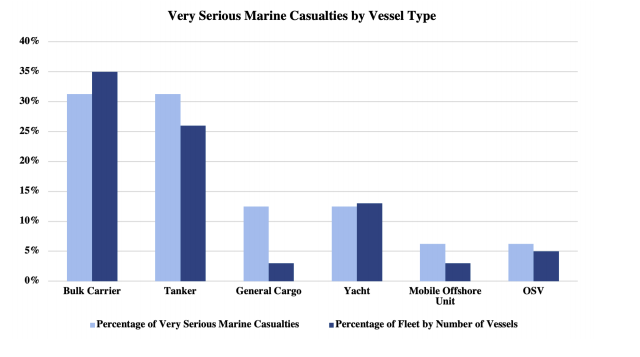
-Marine Casualties, Marine Incidents, and Occurrences
- There were 266 marine casualties (including serious injury, loss or material damage to the vessel, grounding or disabling of the vessel, collision or allision, and severe damage to marine infrastructure or to the environment) reported to the Administrator during 2020.
- There were a total of 309 marine incidents (including events that endangered, or if not corrected, would endanger the safety of the vessel, its occupants, or the environment) reported to the Administrator during 2020.
- There were 135 occurrences (other conditions and events which are not marine casualties or marine incidents but require investigation) reported to the Administrator during 2020.
- Serious Injuries: As in previous years, serious injuries (resulting in incapacitation for 72 hours or more) were again the most frequently reported incident type, accounting for 124 of the reports received by the Administrator during 2020.
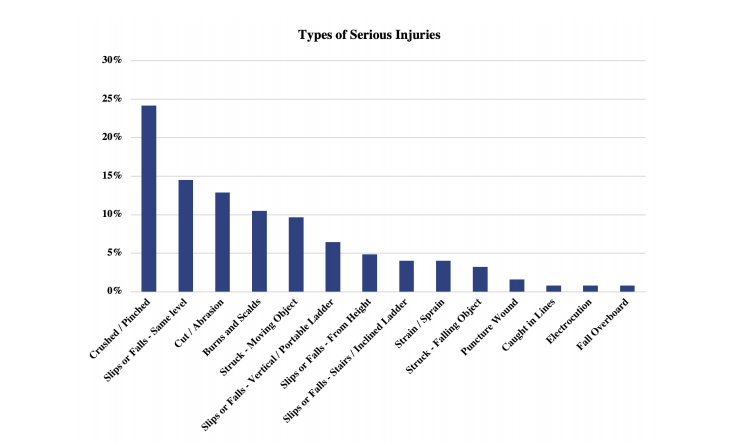
- Collisions and allisions: 61 collisions and allisions were reported. 32 of these incidents occurred with a pilot on board.
- Groundings: A total of 32 groundings were reported to the Administrator during 2020, with 18 of these occurring with a pilot on board. One grounding resulted in the constructive total loss of the vessel. Groundings were most frequently reported while transiting the rivers of the east coast of South America, where constantly shifting shoals and fluctuating water levels are common.
- Loss of propulsion: Of the 103 loss of propulsion incidents reported to the Administrator during 2020, 33 occurred while a pilot was on board. Three of the 33 incidents which occurred with a pilot on board subsequently resulted in the grounding of the vessel while one resulted in a collision with another vessel.
- Fires:
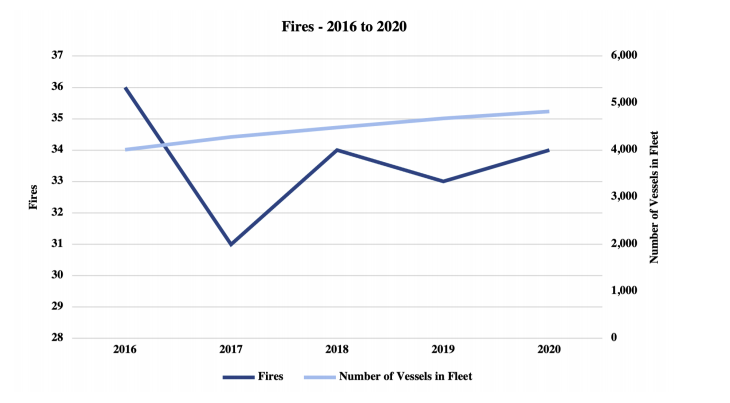
Critical issues
- Accidental Falls: During 2020, falls accounted for almost 33% of all occupational fatalities and serious injuries that were reported to the Administrator. Falls (including from height, on stairs, and overboard) remain the leading cause of occupational fatalities and serious injuries onboard RMI-registered vessels over the past five years
- Enclosed Space Entry: During 2020, improper enclosed space entry and rescue incidents continued to be the second leading cause of occupational fatalities of seafarers on board RMI-registered vessels. This accounted for the death of two seafarers during two separate incidents. While the number of incidents resulting from improper entry into enclosed spaces has decreased over the past few years, continued vigilance is needed to ensure awareness is maintained across the fleet.
- Seafarer Wellbeing: The ongoing COVID-19 pandemic has placed a burden on seafarers who are facing increased coastal State restrictions which severely limit shore leave and repatriation. This can contribute to fatigue, stress, and a range of other impacts on the seafarer’s wellbeing. While this is not directly captured in the data presented in this report, it is likely a causal factor in many of the incidents reported.









































